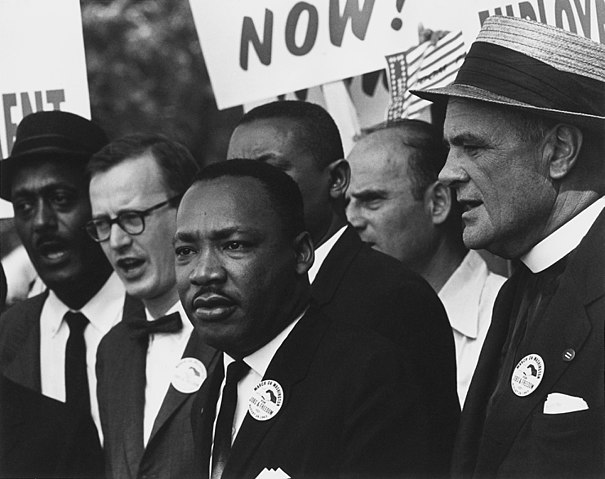
by Edna Ralston
February is Black History Month. During this time, remembering both the profound traumas of black history and the historic contributions of Blacks to our country is altogether fitting.
To begin, a broad stroke will show the basic situation of African Americans in our country: Four hundred years ago, white people brought Black people over here and enslaved them. And sold them. And treated them as less than human. For 250 years. While white men built the country and created its laws and its systems of government. While 10 to 15 generations of white families got to grow and flourish and make choices that could make their lives better.
And then 150 years ago, white people “freed” Black people from slavery. But then angry white people created laws that made it impossible for Black people to vote. Or to own land. Or to have the same rights as white people. And even erected monuments glorifying people who actively had fought to keep them enslaved. All while another five to 10 generations of white families got to grow and accumulate wealth and gain land and get education.
And then 60 years ago, we made it “legal” for Black people to vote, and to be “free” from discrimination. But angry white people still fought to keep schools segregated. And closed off neighborhoods to white people only. And made it harder for Black people to get bank loans, or get quality education or health care, or to (gasp) marry a white person. All while another two or three generations of white families got to grow and pass their wealth down to their children and their children’s children.
All this has led to various forms of systemic racism. The educational system for most blacks is just plain awful. Inadequate teaching staff. Inadequate books and computers. Crumbling buildings, and so forth. (See “Savage Inequalities,” by J. Kozol, for details).
The criminal justice system treats Blacks differently than whites: more stops, more arrests, more convictions, more and lengthier sentences. The housing system persists in showing racism. (A Black family recently was given a low estimate for the value of their house. When they removed photos and the light skinned partner was the one who showed it, the Realtor quoted a significantly higher value, e.g.)
Alas, many middle-class whites do not believe that Blacks have suffered unduly, and blame them for not being more successful. One recently told me, in effect: “My ancestors came from Italy and Ireland. They were treated very badly and discriminated against. But they worked hard and we are all now very successful. Why can’t African Americans do the same? And slavery has been around forever (so ‘no big deal’ implied).”
He misses the profound disanalogies in the cases. Slaves were captured, brought here in abysmal conditions, families were split up never to see one another again, and this enslavement lasted for 250 years. Not quite like the experience of my Irish great-grandmother. (That slavery is common does not make it acceptable, of course.) One can only think as he did by not knowing what Blacks have endured for centuries. That is why BHM is so very important. It is our chance to address our ignorance.
There are many films one could watch in order to get a picture of both the past and the present. And I hope we all make it a point to watch them during BHM. They include “The Help,” “42” (Jackie Robinson), “A Raisin in the Sun,” “Roots” parts 1 and 2, “Hidden Figures,” “Malcolm X,” “12 Years a Slave,” “The Green Book,” “Harriet,” “Glory,” “The Color Purple” and “Rosewood.” There are many more.
I hope we all take some time during February to become more aware of the profound problems that face African Americans in our society.
By <a href="https://en.wikipedia.org/wiki/en:Rowland_Scherman" class="extiw" title="w:en:Rowland Scherman"><span title="American photographer">Rowland Scherman</span></a> – <a href="https://en.wikipedia.org/wiki/U.S._National_Archives_and_Records_Administration" class="extiw" title="en:U.S. National Archives and Records Administration">U.S. National Archives and Records Administration</a>, Public Domain, Link
















